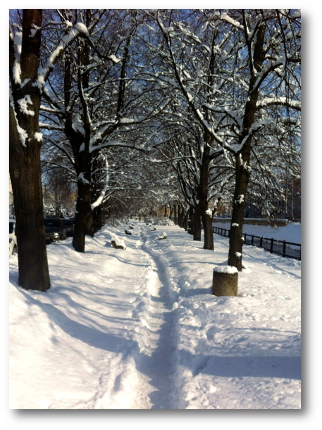Greetings from Poprad, Slovakia. Ďakujem. That’s all I can say in Slovak, and while I know it’s not much, according to my mother it’s the most important word in the world. It means “thank you”.
I’m here to cover the women’s Olympic qualification hockey tournament, and – as far as I can tell – I am the only reporter who’s not either from Slovakia or Japan.

It’s got its advantages and disadvantages. The upside is that sometimes I get a little preferential treatment. I get to handpick the players I want to talk to, and they bring them to me, before they meet the rest of the media.
Then again, when it’s a press conference setting, and they have people interpreting the questions from Slovak to Japanese and from Japanese to Slovak, and then the answers, they don’t want that one guy asking anything in English.
Instead, they give me a private recap of some of the answers, and I’m sure it’s not as detailed as the actuals answers seem to be, but who am I to disagree with the coach if he thinks “it was a good game”.
So last night, I listening to the Japanese and the Slovak questions and answers for about fifteen minutes, but I didn’t hear ďakujem, or any of the Japanese words I learned from the TV mini series “Shogun” 30 years ago – like “wakarimasu” – so I mostly just stood there and smiled.
Ten years ago, I was at the hockey world championships in Ostrava in the Czech Republic with a group of friends. While there, we realized that the language barrier between us and the locals was a big one. One of my friends had worked in Poland for years, and he drew upon that experience to come up with a solution.
“We should just speak Finnish. I mean, we don’t speak Czech, they don’t speak English, it doesn’t really matter what the common language we don’t understand is,” he said.
“That’s what I always did in Poland. The important thing is to just smile, look happy and friendly, and use numbers,” he added.
And that’s what we did. We ordered food in Finnish, and got drinks in Finnish, and bought train tickets in Finnish, using a lot of numbers, all the while smiling. And people smiled back.
Smiling’s important, especially when you don’t know the language. While there’s the language barrier, and we seem lost, we still have the social code.
Poprad’s covered in snow. It has been snowing three of the four days I’ve been here which means that the sidewalks are gone. In their place is simply a tiny path that goes through the snow. On my first day here, I went for a walk to find the city center. Finding downtown is important to me because I don’t think I’ve truly visited a place if I haven’t been downtown. (Wife and I drove around Oklahoma quite a while to find it).
On my way there, I met a young lady walking to the opposite direction. The path was obviously too narrow for both of us, but a few meters before we would have passed each other, she saw a hole in the snow by the side of the path, and then very carefully placed her foot in the hole, so I could pass.
I nodded to her, smiled and kept on walking.
On my way back to the hotel, just outside the arena, I saw a man carrying two plastic bags, one green, one red, walking towards me. We, too, were on a collision course. As we got closer, I saw a footstep in the snow, by the side of the path, so I very carefully placed my shoe in the hole, and let the man pass.
Ďakujem, I muttered, smiling.
He slowed down a little and looked at me. Then he nodded approvingly, smiled back, and kept on walking.
